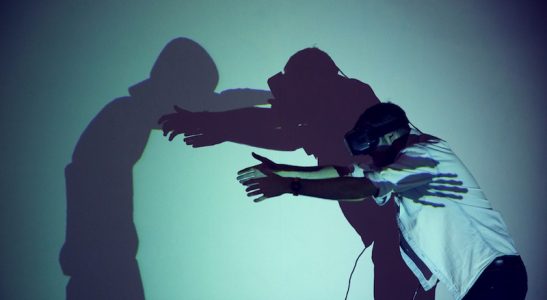Summer School GAIIA, Thessaloniki 5-9 June 2017
The body and gestures play a primordial role in everyday activities. From a young age, people develop sensory and motor skills by interacting with the world. Over time, they accumulate experiences and enrich their abilities. Their body is transformed, allowing them to express, communicate and interact with the environment. New enabling technologies contribute to a deep understanding of this interaction, through the capturing of movement, modelling, machine learning and analysis, as well as the transmission of artistic or technical gestures.
This week aims to bring together professionals concerned with gesture, such as scientists, artists, ergonomists, engineers etc. in order to discuss the potential synergies between art and industry. It is hoped to make it possible to identify the new uses of gesture capturing and “embodiment” in the process of creation, both from industrial and artistic perspectives. It should also be possible to develop perspectives and suggestions for long-term research around human gesture. Another main aim of the summer school is educational, since participants will have the chance to attend presentations and play an active role in what is taking place in the workshops through-out the five days of the summer school.
This Summer School is part of a series of Think-Tank GAIIA events
“GAIIA: Gesture & Artificial Intelligence in Industry and Arts-
What synergies will emerge in the next 10 years?”
which are organized in different European cities.

Programme
Monday June, 5th
10 am – 1 pm 2.30 pm-5.30 pm
|
|
Warm Up!
Laure Leroy, “A collective way to understand our body”
Jean-François Jégo “Gesture and computing: Enactive exploration of sensorimotor and cognitive levels”
#gesture #physiology #exercise #embodiment
|
| Workshop
“Familiarisation with motion capture” |
|
|
Tuesday June, 6th
10 am – 1 pm 2.30 pm – 5.30 pm
|
|
|
Talks
Sotiris Manitsaris, “Capturing, modeling and recognition of human gesture”
Christina Volioti, “Machine learning
in sonification of expressive gesture”
Paraskevi Kritopoulou, “Using Random Decision Forests for feature extraction from depth images”
#sensing #MachineLearning #recognition #computing #feedback
|
| Workshop
“Co-creating computer-mediated interactions with machine learning” . |
|
|
Wednesday June, 7th
10 am – 1 pm 2.30 pm – 5.30 pm
|
|
Talks
Dominique Boutet, “Analyzing gestures: The influence of Art History. How Mocap and VR could change that?”
Vincent Meyrueis “Gesture and sketching in immersive VR and AR environments”
#art #VR_headset #Creativity #avatar #VideoGame #movies
|
| Workshop
“Experiencing gesture analysis and creative tools in mixed-reality environments” |
|
|
Thursday June, 8th
10 am – 1 pm 2.30 pm – 5.30 pm
|
|
|
Talks
Katerina El Raheb, ”Managing and enriching dance data and movement knowledge ”
#design #manufacturing #CulturalHeritage #dexterity #MachineIntelligence
|
| Workshop
“Let’s innovate”
#trends #co_creating #imagine
#co_participating #startup |
|
|
Friday June, 9th
10 am – 5.30 pm
|
|
Think-Tank GAIIA “Gesture & Artificial Intelligence in Industry & Arts –
What synergies will emerge in the next 10 years?”
#innovation #creativity #AR #VR #AI #mocap #design #startup
|
|
In terms of sensors, during the Summer School GAIIA, the participants will have the chance to use gyroscopes, accelerometers, EMG sensors, depth cameras and develop projects with them.
We will be using software such as MAX/MSP and Unity, as well as methodologies that are used in the market and the industries and have to do mostly with Machine Learning, like Hidden Markov models and dynamic time wrapping. |
|
|
Price
Professionals & PhD students 400€ (Includes food)
Students (Bachelor, Master) 250€ (Includes food)
We will provide you later with a list of competitive hotels
|
|
|
Audience
The Summer School will be suitable for Bachelor, Master and PhD students, researchers, professionals from a range of fields, including AI, IT, arts, engineering, industry, business innovation, entrepreneurship etc.
Although the programme will include technical and artistic content, no pre-requirements are needed beyond a background in computer science.
|
|
